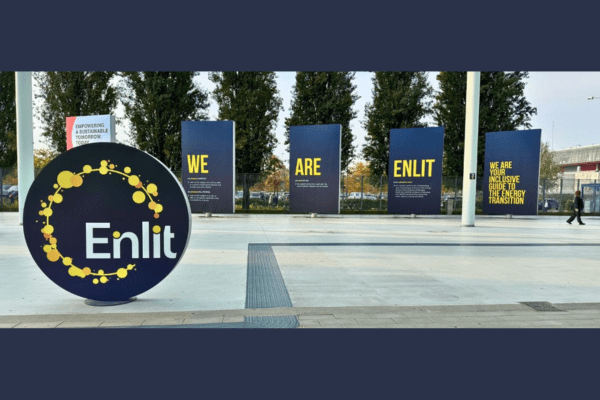The event attracted 15,000 attendees and featured over 700 international exhibitors. ST presented 10 innovative demos and showcased its commitment to sustainable energy solutions, with a focus on connected, secure, and sustainable grids. The demos highlighted advancements in artificial intelligence, connectivity, security, and edge computing. The event also provided networking opportunities and we hosted customers in our on-booth meeting room.

ST4SIM-300: eSIM for IoT

The demo showcases the ST4SIM-300‘s remote SIM provisioning capabilities, designed according to the latest GSMA ‘eSIM for IoT’ specifications (SGP.31/SGP.32). This innovative solution reduces the complexity of the eSIM ecosystem, making profile switching accessible to small IoT devices and constrained networks such as NB-IoT. The ST4SIM-300 enables seamless and flexible connectivity for IoT and industrial devices by downloading the best connectivity profile locally available through bootstrap connectivity.
A key feature of the ST4SIM-300 is its push mode profile download, a paradigm shift from consumer eSIMs that use pull mode. The web interface, eIM (eSIM IoT Remote Manager), allows remote control of the device, enabling profile downloads, activations, and deactivations without manual intervention. This demo also highlights its practical applications in asset tracking, metering, and healthcare monitoring. With a partner like 1Global, the solution simplifies configuration for small companies needing quick and easy connectivity. The product is expected to be ready in the first half of 2025, pending GSMA certification.
STM32WL3: heat cost allocator application

The demo consists of a real heat cost allocator form factor board, with an analog thermistor for accurate temperature measurement. It is powered by the STM32WL3 chipset a highly integrated long-range wireless solution for IoT devices offering a simplified design approach and low power consumption for extended battery life. It offers the essential features for wireless IoT devices, like including longer battery life (more than 15 years in many applications) and reducing design complexity and device footprint.
In this application the STM32WL33 chipset is continuously in deepstop ultra-low power mode mode. Once a movement is detected it wakes up , measures the temperature and sends it over the air thanks to 868MHz WMBUS RF protocol. For reception, one NUCLEO-WL33CC evaluation board is configured as WMBUS concentrator and parses the temperature information on UART terminal.
This demo board is designed for a wide range of application markets, including industrial settings, IoT for smart homes and cities, city infrastructure management, metering, and central alarm systems. Its versatile features make it suitable for various use cases, ensuring ultra-low power modes, precise temperature monitoring and efficient data transmission across different environments.
ST87M01 Module: NB – IoT and Wireless M-BUS in a single platform

The NB-IoT demo features a compact board with the ST87M01 module, HTS221TR temperature sensor, and LSM6DSOTR gyroscope and accelerator. It includes a GNSS antenna for GPS positioning, and the module uses 4G cellular coverage to send data to an ST cloud server via a secure HTTPS connection. This setup monitors position, temperature, and movement, with data viewable on a screen.
The device can last over 10 years on a single battery charge due to its low power consumption in PSM or OFF mode. NB-IoT, a subset of 4G LTE, minimizes network costs, making it ideal for applications like water and gas meters, which collect and send data to utility backbones securely.
In agriculture, NB-IoT can help monitor beehives and track cows, reducing on-site interventions and providing timely notifications for events like calving. The main features of NB-IoT suit applications requiring low data traffic, no latency constraints, battery operation, and low costs.
STM32WL33: Sub-GHz Wireless MCU, water meter application

The new STM32WL33 wireless System on Chip (SoC) is designed for sub-1 GHz markets, including water meters. This SoC offers flexible features like a 20-pin LCD driver, LC sensing peripherals for fluid metering, and an ultra-low-power always-on wake-up radio. It supports frequency bands of 413-479 MHz and 826-958 MHz, with an optional 169 MHz in the STM32WL33-A variant.
Based on a highly efficient Cortex-M0+ single-core architecture, the STM32WL33 is an ultra-low-power RF SoC that extends battery life to over 15 years. It enables long-range communication with +20dBm output power.
It supports the Wireless Meter Bus protocol, available in source code from ST or through third-party providers like STACKFORCE (member of ST Partner Program), offering an OMS pre-certified stack based on STM32WL3. ST provides the WM-Bus stack for the WL3 in a free and open-source format, allowing customers to implement their own solutions. This makes the STM32WL33 ideal for efficient and robust wireless communication in all metering applications.
- Discover more on our events













